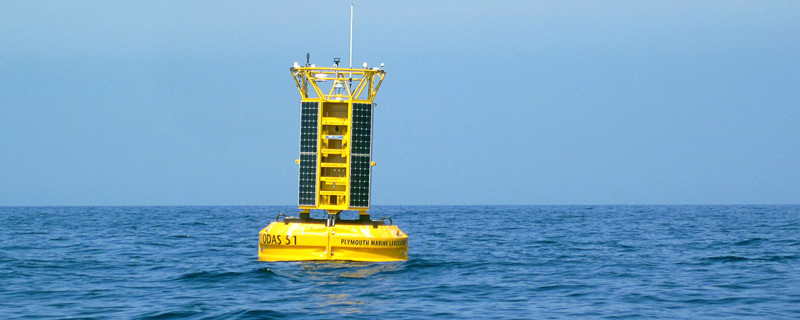This year’s event was much different from previous years, being completely online due to coronavirus, but this allowed it to open up for an international audience.Plymouth Marine Tech Expo showcased some impressive engineering..
Autonomous Applications and Sustainable Marine Technologies were the topics for discussion, perfect to demonstrate the city’s marine credentials, especially during the Mayflower 400 commemorations.
Let’s get Sailing
Starting our day early at sunny Turnchapel, we boarded St Nicholas, thanks to Silverline Cruises. From there, we travelled out into Plymouth Sound and saw both the new solar and wind-powered buoy and AutoNaut; created in partnership with Smart Sound Plymouth, Plymouth Marine Laboratory and Natural Environment Research Council.
Using both GoPro and VR, we filmed onboard the boat, allowing us to get as close as possible to the buoy. This 8.5-meter tall beacon uses both solar and wind power, collecting data ranging from chemical, physical and biological aspects of the sea.
We also got to see the AutoNaut in action – a brand-new fleet in ocean robotics. Named PML Pioneer, this 5-meter long vessel works on wave energy, as well as has both solar and battery pack power onboard. It is completely independent and can survive at sea for many weeks but will be overseen from facilities here in Plymouth.

We filmed the action shots all the way from sea level to high in the sky, getting those beautiful drone shots. With these, you can really see the impressive scale of this autonomous craft.
Working with The Marine Tech Expo
Working closely with Dr James Fishwick, head of Smart Sound Plymouth and Operations and Technology at Western Channel Observatory, we also got to tour the lab and see even closer up how the AutoNaut works and how it will help gather important information from the Sound.
He spoke on how this will allow them to understand and discover more about our oceans and a real success for Plymouth as a hub for marine research.
The final film was shown during the breaks at the official Marine Tech Expo event, with the VR film on show at The Market hall in Plymouth.
To view more work from Soundview, click here.






